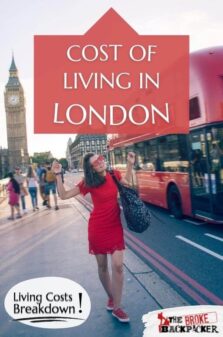Fresh out of school, the world is a blank canvas waiting for you to draw whatever you wish. Whether it’s comfort, money, or friends, it’s very easy to fall into a repetitive lifestyle that we all swore against as naïve youth. The majority of us commit to the same commute every day, and trudge through the long, cold winters with no end in sight. Our only relief is daydreaming from the cubicle.
But daydreams don’t have to be delusions, they can be reality! You can escape the pull of being on the “right track”. One of the best ways to break the shackles, to drastically change the course of your life, is to move to another city or country.
Moving to London brings art and culture to your doorstep. The home of the Globe, where William Shakespeare went down in lore. Switch your home city for a place steeped in history. A place founded by Roman occupation, where the fingerprints of Emperor Claudius remain at the Museum of London and along the original Roman Road.
However, a big move to a world-class city such as London won’t be as simple as boarding the next flight. Our guide will get you thinking about not just life in the capital of England, but also the cost of living in London.

Do You Want to Travel FOREVER??
Pop your email in below to get a FREE copy of ‘How to Travel the World on $10 a Day!’.
Why Move To London?
London is a popular tourist destination with stunning galleries, museums, and sprawling urban parks. Not to mention the iconic Big Ben, Buckingham Palace, and the unforgettable Changing of the Guards. But what is it like to call London home?
The city of London brings a wonderfully diverse community that hails from around the world. The wide spectrum of social possibilities and acceptance of unique personalities will help you not just settle in, but develop a great work/life balance.
London is an innovative city. It’s fashionable and artsy with cultural events and festivals throughout the ever-changing seasons. As we mentioned, London is as much a city of history as anything else. You’ll notice it around every corner and in each old brick that stands out among new architecture.
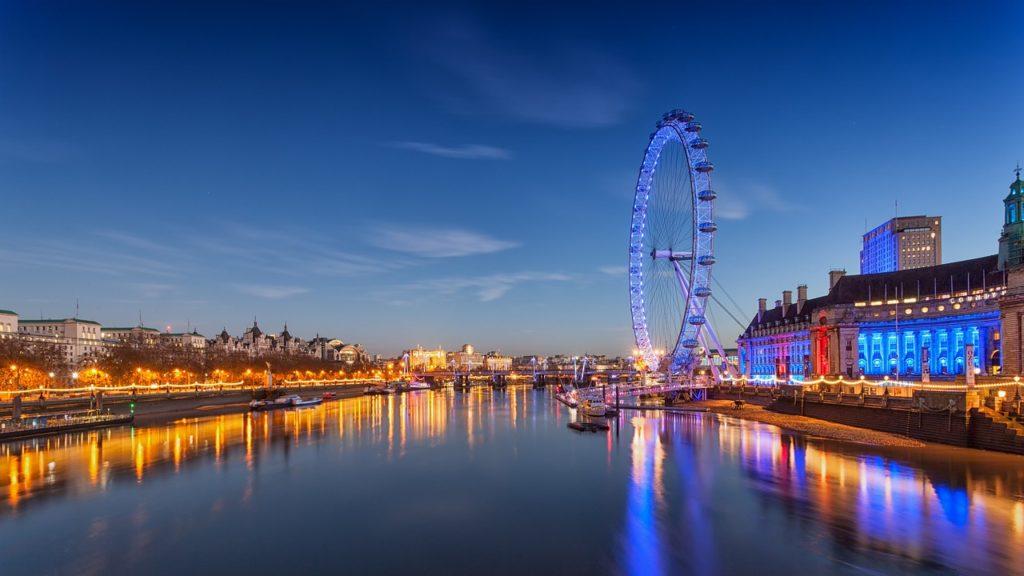
Since its beginning in 43AD Romans, Vikings and endless monarchs have taken reign and added their own piece to the evolving canvas.
It’s not all positive, however, London is not a cheap place to live. Upon moving here, you’ll likely face a higher cost of living and a competitive international job market.
Oh, and the British weather is a fickle beast.
Cost of Living in London Summary
Beyond the frustrating weather, there are many reasons to move to London. Before booking your window seat, let’s go over some of the basic expenses that come with living in London.
Like any city, the overall cost of living here will fluctuate based on where you choose to live. For example, rent in Bexley will be far less than a pleasant home in Clapham.
But overall, unless you’re arriving from New York, you can expect to fork out a higher monthly rent on average.
The numbers below have been gathered from multiple sources using data from locals and expats. The numbers show a city-wide average of what you would need to lead a comfortable lifestyle in London.
| Expense | $ Cost |
|---|---|
| Rent (Private Room Vs Central London Home) | $1050 – $5500 |
| Electricity | $80 |
| Water | $47 |
| Mobile Phone | $62 |
| Gas | $6.57 |
| Internet | $50 |
| Eating Out | $20 – $80 |
| Groceries | $240 |
| Housekeeper (less than 10 hours) | $150 |
| Scooter Rental | $345 – $1100 |
| Gym Membership | $40 |
| TOTAL | $2200 |
What Does it Cost to Live in London – The Nitty Gritty
With the basic costs out of the way, it’s time to go even deeper into the cost of living in London.
Rent in London
For all the things you’re excited to leave behind, whether that be the same old commute, neighborhood, or the local pub, the curse of paying rent will follow you to London. It will continue to be your biggest monthly expense.
The quality of housing varies throughout the city. Because of the high cost of rent, shared houses are common and aren’t restricted to university grads. Yep, it’s perfectly acceptable for all ages to get a slice of the shared house life, simply to live in the city.
Shared houses come in all shapes and sizes. Some won’t have a communal space creating a hotel-like atmosphere between the rooms, while you’ll likely have to share a bathroom with your new housemates.
Despite these drawbacks, it remains popular for a solid reason, and that is cost. Moving to London won’t be cheap, nor will setting up a new life. Sharing a house, at least to start, will stop you from burning through your budget. Plus, you’ll enjoy a built-in social network.
Still not sold on the shared house life? It won’t suit everyone – are you bringing your partner and kids? Do you need to think about the location of schools? What part of the city is your job based? These are just three of many, but it will get the ball rolling.
The closer to the city you get, the higher the rent will be. The competition for those locations is tight as well. No one said moving to one of the best cities on earth would be easy.
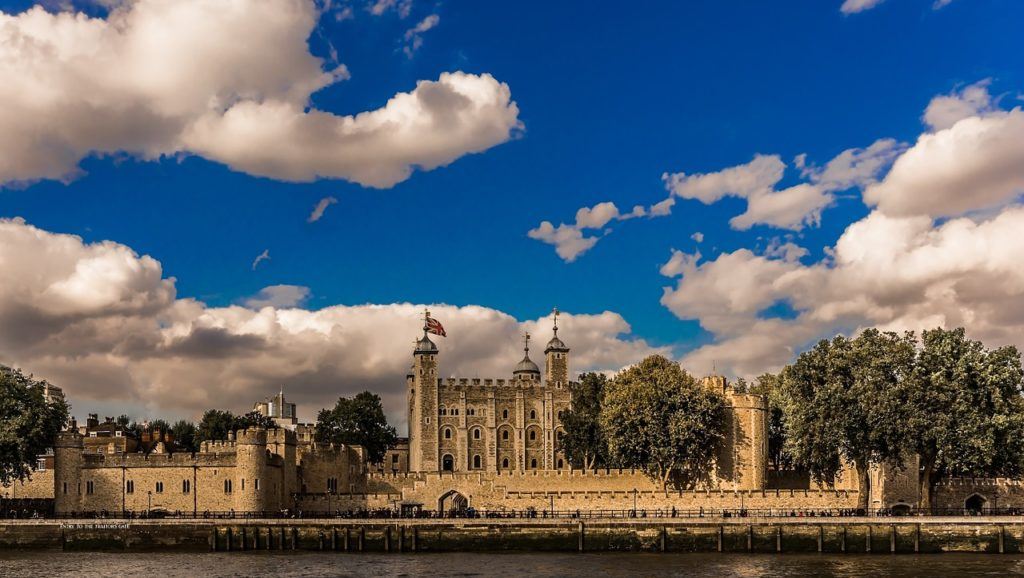
Once you have an idea of potential schools, work areas, and lifestyle opportunities, then you can dive deeper into trying to find a proper home for you, or your family.
Keep in mind that London’s public transport system, including the London Underground AKA the Tube, is extensive. You’ll have the opportunity to readily take part in central city life, even if you live in the outer reaches of the city.
For those jumping on the house share bandwagon, then websites such as Roomgo and Spare Room will cater to your wishes. Both sites are simple and free to use, allowing you to search by area.
If you are searching for a private apartment, flat, or home, then sites such as Zoopla and The HouseShop will put you in contact with landlords and agents.
- Shared Room in London – $1050
- Private Apartment in London – $1500
- Luxury Home in London – $5500
Once you’re in London, the pressure of settling in and beginning your new and exciting life can feel overwhelming. You may want to jump at the first option in order to take that weight off your shoulders. That will only lead to regret. Patience will allow you to make the right choice and let you have the lifestyle you’re dreaming of.
To do this, book an Airbnb for two weeks at a time to slow down your impulses and let logic take the wheel.
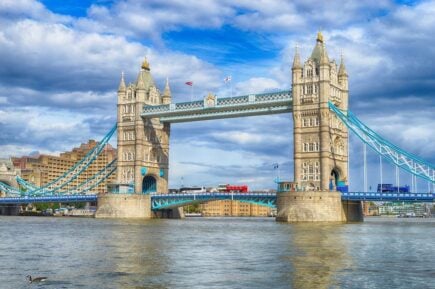
Home Short Term Rental in London
Located in Central Leicester Square, this private room is an ideal base for exploring all the best towns in London to find your city home. It has all the cosy amenities of home close by to cafes and restaurants.
Transport in London
London features a strong and expansive public transport system befitting of such a large city. The well-developed system connects all 32 boroughs of London. It will have you questioning whether a car is really necessary, especially in the months after moving to London.
A lot of Londoners rely on public transport like the tube, bus network, and even river taxis to get to work every day. Exploring the city on the weekend is simple without having to find a parking spot!
The system comprises of nine specific zones. Zone 1 and 2 for the central districts, with the remaining seven creating rings around the city. Make sure you get an Oyster Card for the most cost-effective way of getting around town.
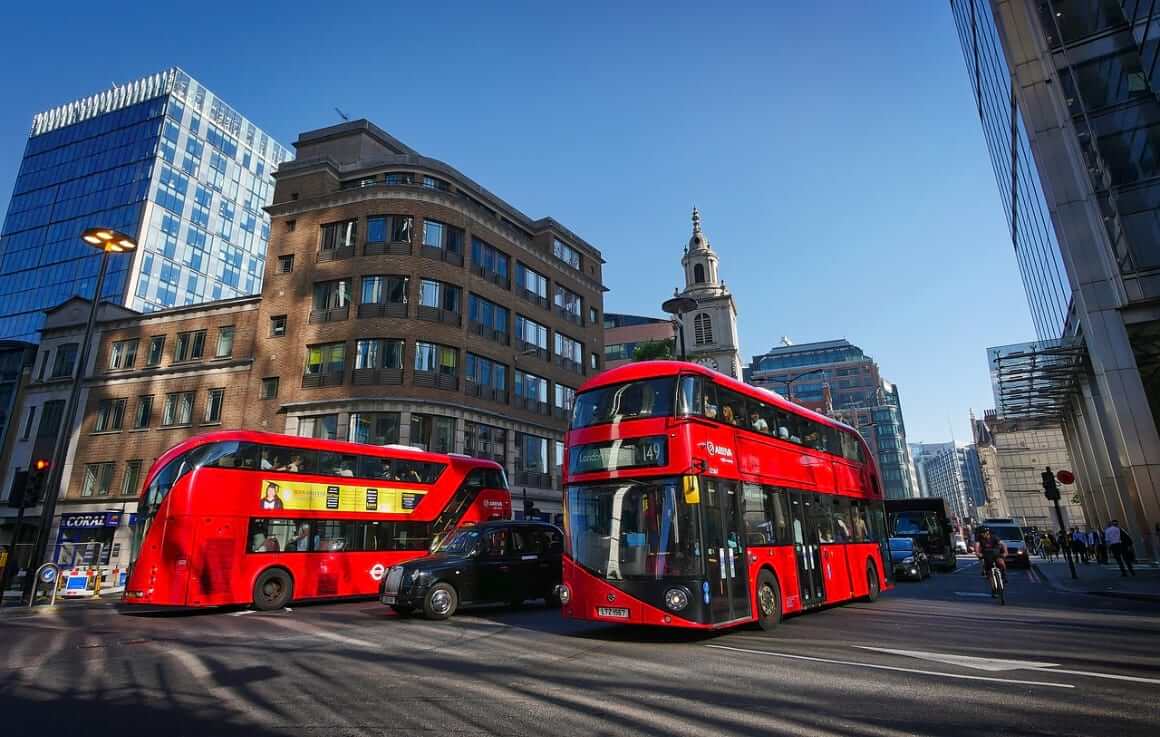
The success of the network can be a double-edged sword, as you can expect a tight squeeze when boarding a train or bus during rush hour.
Taxis and rideshare services are also available. Although more expensive than trains, you’ll also have to contend with inner-city traffic.
There are several e-bikes and e-scooters available around the city. These are great options for short-distance trips and are quite affordable. Renting a scooter is common, although is not always cost-effective once you add on insurance.
- Taxi Ride (Airport to City) – $65
- Electric Moped (per month) – $345
Food in London
Whether it’s fish and chips, bangers and mash, or a full English breakfast, traditional English cuisine is in western pubs all around the world. As much as a hearty English-style meal can hit the spot, that’s not what makes the local food scene in London tick.
It can be easy to mock the English cuisine, but London is a diverse city with culinary influences that cover the entire globe. You can find a full spectrum of flavors and spices in local restaurants, markets, and on your grocery shelves.
It’s easy to get swept up in the sheer amount of choice. It’s enough to make any foodie envious, and if you’re a fan of chasing new culinary experiences, then London has them all in one place. The only issue? Cost.
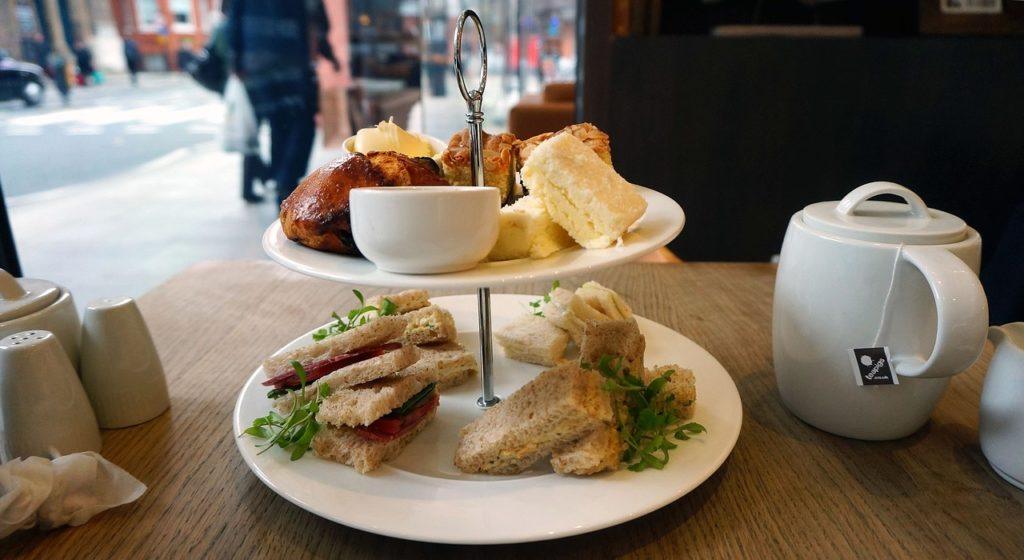
At the low end of the budget, eating out for dinner will cost at least $15 a person, four or five times that amount for a multi-course dinner at a renowned restaurant.
On the bright side, London has some wonderful cheap eats that cover anything from Thai to Ethiopian. The street stalls at local markets, such as the Borough Market, can provide the goods without burning a hole in your back pocket.
Find a happy medium that suits your budget without limiting your new experiences. Tesco, Lidl, and Morrisons are top supermarket chains in London that will not only help you save money but allow you to try a wide range of new recipes.
- Milk (1 litre) – $2
- Loaf of Bread – $2
- Rice (1kg) – $1.50
- Eggs (dozen) – $2.75
- Apples (1kg) – $2.50
- Tomatoes (1kg) – $2.50
- Potatoes (1kg) – $1
Drinking in London
The tap water in London is safe and healthy for you to drink. It can be improved by purchasing a water filter, filling it up, and letting it chill in the fridge overnight. This way you’ll have refreshing, filtered water ready to go.
You can readily purchase bottled water around the city at supermarkets or small convenience stores. Costs for a small 330ml or large 1.5l bottle works out to be around $1.50 for both, so it’s best to buy in bulk.
Dining out in London may come with an inflated price tag, but we aren’t just talking about food. A pint of domestic draft can cost around $7 with a similar price for an imported bottle.
With that said, alcohol at supermarkets, especially Lidl, sell cheap beer, wine, and spirits. Cider in the UK can be cheaper owing to the popularity of brands like Strongbow. A six-pack of beer or cider can range between $10-$15.
Why Should You Travel to London with a Water Bottle?
Whilst there’s a lot that we can do when it comes to traveling responsibly, reducing your plastic consumption is one of the easiest and most impactful things you can do. Don’t buy one-use water bottles, don’t take plastic shopping bags, and forget straws. All of this just ends up in landfill or in the ocean.
Keeping Busy and Active in London
Once you are living in London, you’ll be surrounded by so much to do and see. You can try new foods, get your bearings, stroll through vintage markets, or tick off the many world-class museums.
London is full of history and is a great place to walk around, even without a map. Simply get lost in the endless streets that tell tales centuries old.

It’s a social city with a brilliant mix of communities, expats, and youth. As an international city, there are many ways to meet new people, especially those that are in the same boat as you.
Here are some of the best ways to stay active and healthy in London:
- Gym Membership – $40
- Meetup Groups – Free
- TFL Bikes – $3 (all day)
- Social Sports – $10 per week
- Yoga – $20 per class
- Walking Tours – Free – $40
School in London
Education in London, and the UK in general, is a high quality and one of the top reasons expats move to the city. The state system (public schools) can be attended for free by dependents of expats who have working rights, or are resident in the country.
While the public school system in London is strong on average, the quality still varies based on location. The local school in your district is where you will have to send your children. For this reason, knowing the location of your preferred schools should factor into where you decide to live.
Private schools are common in London, and most follow the national curriculum, although some focus on the International Baccalaureate. Some are religious, which may influence their style of education.
On average, private schools within London will cost $5,300 per term. International schools, which can allow students to continue with their previous curriculum, can cost up around $8,000 per term.

We’ve tested countless backpacks over the years, but there’s one that has always been the best and remains the best buy for adventurers: the broke backpacker-approved Osprey Aether and Ariel series.
Want more deetz on why these packs are so damn perfect? Then read our comprehensive review for the inside scoop!
View on Osprey View on REIMedical Costs in London
London is home to UK’s renowned National Health Service, or simply put, the NHS. The system is one of the best examples of universal healthcare found around the world. The system is backed by many public hospitals and should allay any fears expats might have about receiving healthcare.
If the worst case scenario arises and you need to receive emergency treatment, this can be done free of charge. However, to access the healthcare system under more common circumstances, ie for checkups, or specialized services, you’ll have to register with your local general practitioner. You need to have the necessary visas, such as temporary or permanent residency papers. Once registered, you won’t have to wait long to see your GP and can then be referred to specialists if necessary.
Similar to other universal healthcare systems, extras such as dental and optometry will require an out-of-pocket expense. To help with this and also improve wait times for care, many locals and expats sign up for private healthcare. Private insurance has many options to suit most budgets, from basic $30 per month plans to expansive $500 a month coverage.
Because of the cap on prescription costs, anyone with recurring medication can expect a budget-friendly visit to the pharmacy.
SafetyWing offers a monthly healthcare plan which covers Digital Nomads, expats and long-term travelers. We have been using it ourselves for a while now and find them to provide great value.
Visas in London
Even as travel becomes easier (in non-Covid-19 times) and more accessible for citizens of the world, visas remain a standard bridge to cross. In order to visit, work and live in London, you will need to attain a visa that best suits your situation.
The UK has a variety of visas that cover basic tourism all the way to permanent immigration. Although a long process, for those that wish to move to London and stick around indefinitely, there are ways to eventually pursue citizenship.
Expats hailing from the European Economic Area and members of the Commonwealth, you don’t need to apply ahead of time. A tourist visa will allow you to stay for up to six months! However, you won’t be able to pursue employment on this visa. That restriction also covers Digital Nomads.

For those who wish to work and stay in London, there are several options to choose from, depending on age and goals. The most common is the Youth Mobility Scheme, where nationals from countries like Australia, New Zealand, Canada, South Korea, and Japan can come and work in London for up to two years. Candidates, however, will need to be aged between 18 and 30.
There are also visas for high-skilled workers, such as the Global Talent Visa along with the Tier Two visas. Both aim to attract those with sought after skills in order to fill shortages in various industries.
On those visas, you can apply to bring your significant other along with immediate family members. After living in the UK for five years, you will be eligible to apply for citizenship.
There are student visas on offer that allow you to move to London for the duration of your studies. This can be granted for up to five years, depending on your course. Once you’ve completed your studies, you can then apply for a Graduate Visa that will allow you to continue to live and work in the UK along with potentially exploring permanent residency and citizenship.
Banking in London
Over the years, banking in London gained a reputation for being difficult for newcomers. Gladly, the tide seems to be turning, allowing expats more ease in opening a bank account in the UK.
Generally, banks in London will require two documents, one to prove your identity and the other to show where you live. The second document has made it hard for expats who need to open an account before they’ve settled.
Some banks have become more flexible, allowing you to show your National Insurance Number, or a letter from your employer. Once you’ve moved into your home, you can update your details.

Banking in London is competitive, which means it pays to shop around and see what deals are on offer. Some banks will be more experienced with your unique situation and will therefore have accounts that suit the needs of expats. These banks include NatWest, HSBC, and Barclays.
All three have branches and ATMs around London, and the broader country, allowing you to solve any issues that may arrive with greater ease.
While cash is always easy and simple – debit and credit cards are the most common form of payment. It may be tempting to continue on using your home card, but international fees quickly add up and can discreetly blow up your budget.
For this reason, we suggest signing up for a Payoneer or TransferWise account. Both allow you to transfer your funds to a travel card and avoid paying those hefty fees.
Taxes in London
If you plan on living in London (and the UK) for over six months, then you’ll have to pay tax on your local income. Your employer will automatically take tax out of your pay. The majority of the work is then done behind the scenes, but you may receive a notice each April.
For those that receive a notice, you’ll have to file your tax return promptly. If you have a complicated tax scenario, for example, investment and property income, you’ll have to file individually and potentially with the help of a tax accountant.
Keep in mind that although you’ve left your home country behind, you may still be considered a tax paying resident. In order to fulfill your obligations in each country, contact a local expert who can guide you through your situation.
Now that we’ve covered the basic costs of living in London, you may feel ready to make the leap. But any big move like this will always bring unexpected hurdles and trip ups that are hard to foresee.
By getting the ball rolling and thinking outside of the box, you’ll get some peace of mind to help you navigate the exciting, yet sometimes intimidating, situation.
While not specifically a hidden cost, something that trips up a lot of newcomers is the exchange rate. The British Pound is stronger than the vast majority of currencies, often by a fair margin. Early on, as you rely on your personal savings, it’s easy to forget that one pound spent isn’t as cheap as it sounds.
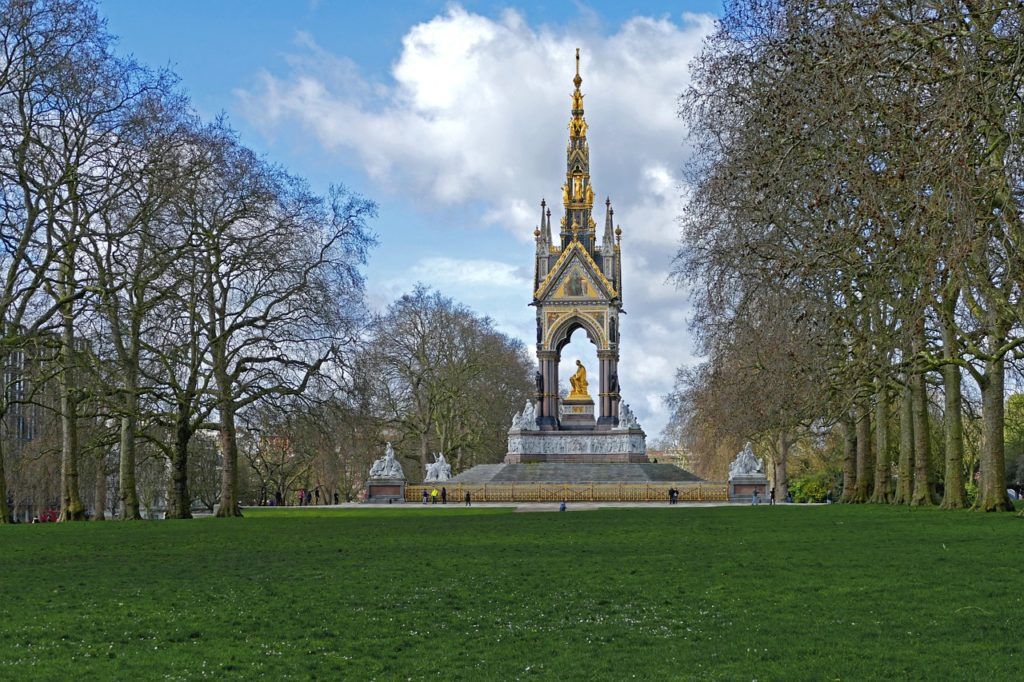
Extra taxes such as the emergency tax are added on if you have not registered for social security. It’s easy to see how expenses can quickly add up. The biggest one is often hard to foresee but easy to plan for.
Although you’re excited to move to another country, you’ll likely be leaving family and friends behind. Whether it’s an unexpected family problem or sudden homesickness, a major unexpected cost is a flight ticket home. As you save up to move abroad, have a separate account for emergencies. A bit of money that you can depart with in order to navigate your new life with more ease.
Insurance For Living in London
On a global scale, London is a safe place to live. The popular tourist destination is across the board a welcoming community. But like any major city, you’ll find areas you love, and others that you’re not a fan of. Taking normal precautions and using common sense will steer you away from potentially problematic situations.
Traffic in London can be tricky, and for those renting scooters or motorbikes, there is an added level of danger. Accidents happen, no matter how cautious you are.
While you can feel perfectly safe when moving to London, unexpected costs like a vehicle accident can eat into your savings. It’s best to purchase some coverage that will protect the things that matter. We previously mentioned SafetyWing, who provide great coverage of the basics, and will take the weight of worry off your shoulders.
Month to month payments, no lock-in contracts, and no itineraries required: that’s the exact kind of insurance digital nomads and long-term traveller types need. Cover yo’ pretty little self while you live the DREAM!
SafetyWing is cheap, easy, and admin-free: just sign up lickety-split so you can get back to work! Click the button below to learn more about SafetyWing’s setup or read our insider review for the full tasty scoop.
Moving To London – What You Need To Know
Now that we’ve covered expenses and your budget is set, let’s explore what to expect when living in London.
Finding a Job London
As an international city with connections around the globe, there is an abundance of industries in London. Whether you’re trying to continue on the same career path or start on a new one, you’ll find plenty of local opportunities.
The job market is competitive with locals vying with country residents and international expats for the hottest gigs. Popular industries include finance, journalism, and education. IT continues to boom while film and design are burgeoning industries in their own right. Plus, we know how big the tourism sector is within London.
If you’ve arrived on a Youth Mobility Visa or a Student Visa, London isn’t all about top end jobs. There is a thriving hospitality scene in the city, on the back of an expansive public arts and entertainment industry. Londoners love a drink!
You won’t have a hard time finding a temporary, or long-term gig, within the service industry. Many establishments see a revolving turnover of staff thanks to work visas ending and backpackers moving on.
Where To Live in London
London is an enormous city. Central London alone comprises seven boroughs and covers a greater land area than New York City. The city also has a population of almost nine million.
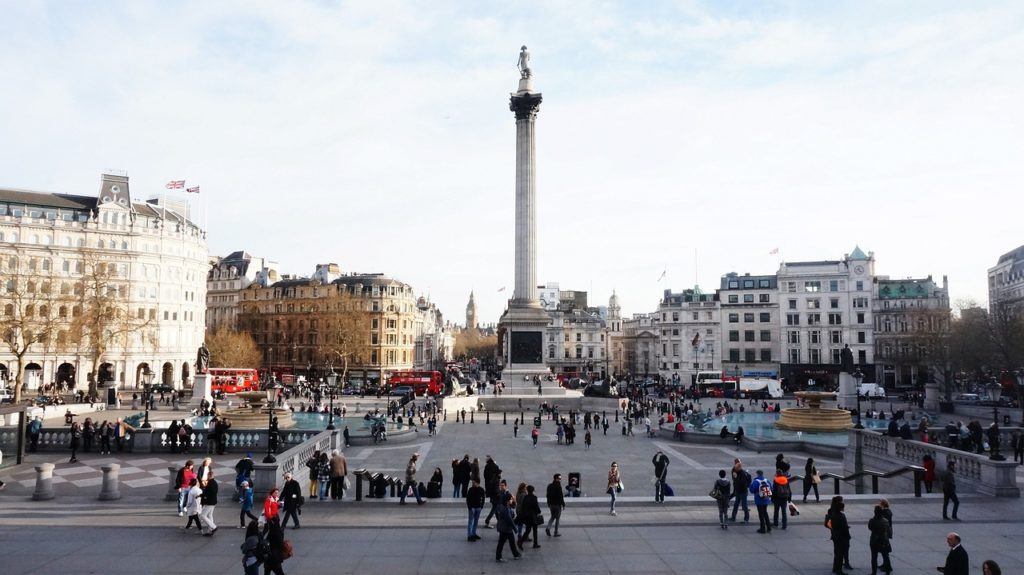
Naturally, different parts of the city offer greater amenities, different subcultures and employment opportunities. Some boroughs will have better schools and public parks, while others better balance cost of rent with access to downtown.
Below, we have outlined five different neighborhoods in London that cover varying budgets and experiences.
Bexley
A top option for those on a tighter budget, Bexley is one of the safest and cheapest boroughs to live in London. The district is a popular spot of new expats, families, and retirees, providing locals with a leafy area in the city’s south-east.
There are over 100 public parks, along with trails down the River Thames. Culturally, it can be caught lacking with a rather tame nightlife and dining scene. It is work noting the local public transport isn’t as well connected as other boroughs in the city.

Bexley
Perfect for those with a tighter budget, Bexley is an ideal place to make your London home. Just 30 minutes outside the centre of the city, it has easy access to the corporate heart, thriving nightlife and busy shopping districts. It is a quiet and comfortable borough for families and retirees.
Islington
In East London, Islington is a growing ‘hip’ neighborhood full of arts and creativity. The area’s population has become more youthful on the back of rising rent prices across London. Naturally, the arts scene grew along with indie cafes and vintage shops.
To complement the growing foodie and nightlife scene, Islington is well connected via transport to the rest of London. This opens up employment opportunities around London and negates the necessity of purchasing a car.
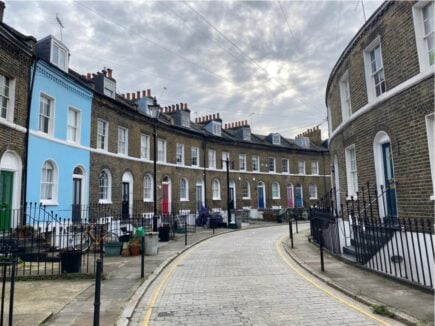
Islington
Filled with indie cafes, vintage stores and a bustling foodie scene, Islington is an idyllic setting for a young professional looking to base themselves just a train ride away from Central London. With plenty of accommodation options and all the amenities you need for a nice work/life balance, it is the perfect place to call your city home.
Richmond
As one of the most desirable places in the city, Richmond offers the perfect balance between downtown access and a relaxed atmosphere. For this reason, Richmond is popular with expats, especially families, who can enjoy a peaceful life just steps away from the bustle of downtown.
Richmond is also placed along the River Thames, granting locals access to urban parks and beautiful river views. It shouldn’t come as a shock that the borough is consistently labelled one of the happiest places to live in London.

Richmond
Labelled one of the happiest places to live in London, Richmond offers the perfect city/borough balance just a short train ride away from the centre. Great for families and young professionals, it has everything you could need for a comfortable life in London.
Camden
Like Richmond, Camden is one of the most sought after neighborhoods in London. Home to one of the city’s famous public markets, Camden offers a central location with easy access to the Tube.
Camden is a multicultural melting pot of locals and expats that helps to form a delightful shopping, music, and culinary scene. Its popularity, of course, brings a higher cost of living. But for most, it’s more than worth it thanks to a happening community, with an exciting cultural calendar.
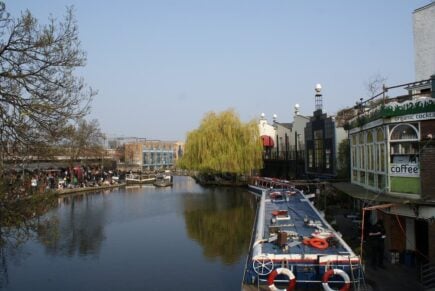
Camden
Camden is one of the closest areas to Central London, being just a short Tube ride away. It is a hip and happening area that has a thriving shopping and nightlife scene. Ideal for younger expats, you will need to fork out a bit more on rent, but will be in the heart of the action.
Clapham
Locals love to dismiss Clapham as the ‘posh part’ of London. But on closer inspection, there are several distinctive parts of the borough that have something for everyone. Clapham North and Clapham Junction are popular among young professionals, students, and expats because of local dining, nightlife, and public transport.
Clapham Old Town is gorgeous with Georgian terrace houses giving the borough its upper-class reputation. The several sprawling parks, low-crime rate, and plenty of public and private schools, Clapham is well-worth considering.
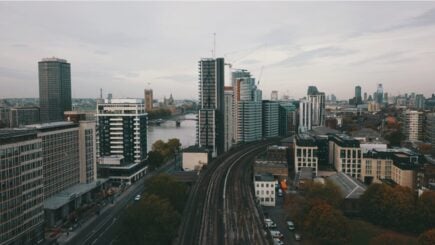
Clapham
Clapham has a little bit of something for everyone. There is a happening nightlife and restaurant scene for the younger crowd, as well as terraced housing and private schools for families. Beautifully British, if you have the cash to spend, it is a stunning place to set-up your London home.
London Culture
Being a multicultural city with many sub-communities, there are plenty of opportunities to engage and weave into the local fabric. Regardless of where you’re from, you won’t automatically be typecast as the resident expat.
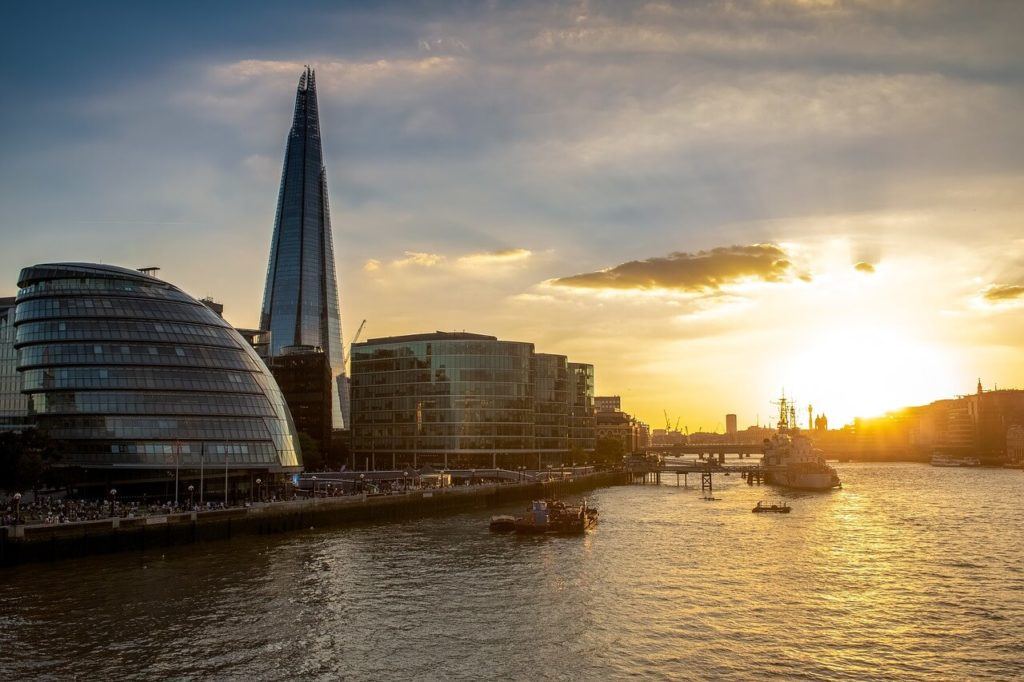
London is home to many festivals and events throughout the year, while the local sporting scene plays a huge role in personal identity. Fashion in London is a way to express yourself, and there’s seemingly nothing that is ‘too edgy’.
Going out to the pub is a regular part of social life in the city, whether that be for a drink or simply a meal with friends and family.
Pros and Cons of Moving To London
Local London culture is inviting. The job market is enormous and the possibilities to lay roots and stay long-term are readily available, but nothing is perfect. We’ve barely mentioned the fickle winter weather.
Like anywhere, there are pros and cons to living in London. Some will matter more to you than others. Let’s go over the most common strengths and gripes.
Pros
Lifestyle – As a city of history, culture, public events, and sport, it is hard to be bored with life in London.
Cuisine – A melting pot of international residents complement the traditional cuisine, providing endless culinary possibilities.
Parks – From Hyde Park to Regent’s Park, almost half of London is green space. Enjoy the summers to the max with mates in the park.
Transport – London’s public transport is amazing and a lifesaver for those in the outer boroughs.
Cons
Cost of Living – London makes up for high rent by being a thriving, diverse city, but living in London comes with a big price tag.
Weather – The British weather is infamous. The endless, miserable rain can drag even the most positive person down.
Tourists – Yes, we are all at some point a tourist, but the popularity of London can make you feel you’re competing for space at attractions.
Transport – Yes, the tube is outstanding, but rush hour among the crammed trains can be a nightmare.
Living as a Digital Nomad in London
London is a popular destination for digital nomads for the same reasons tourists flock to the city. The plethora of museums, sporting events, and history make it a worthwhile stop on the nomad journey.
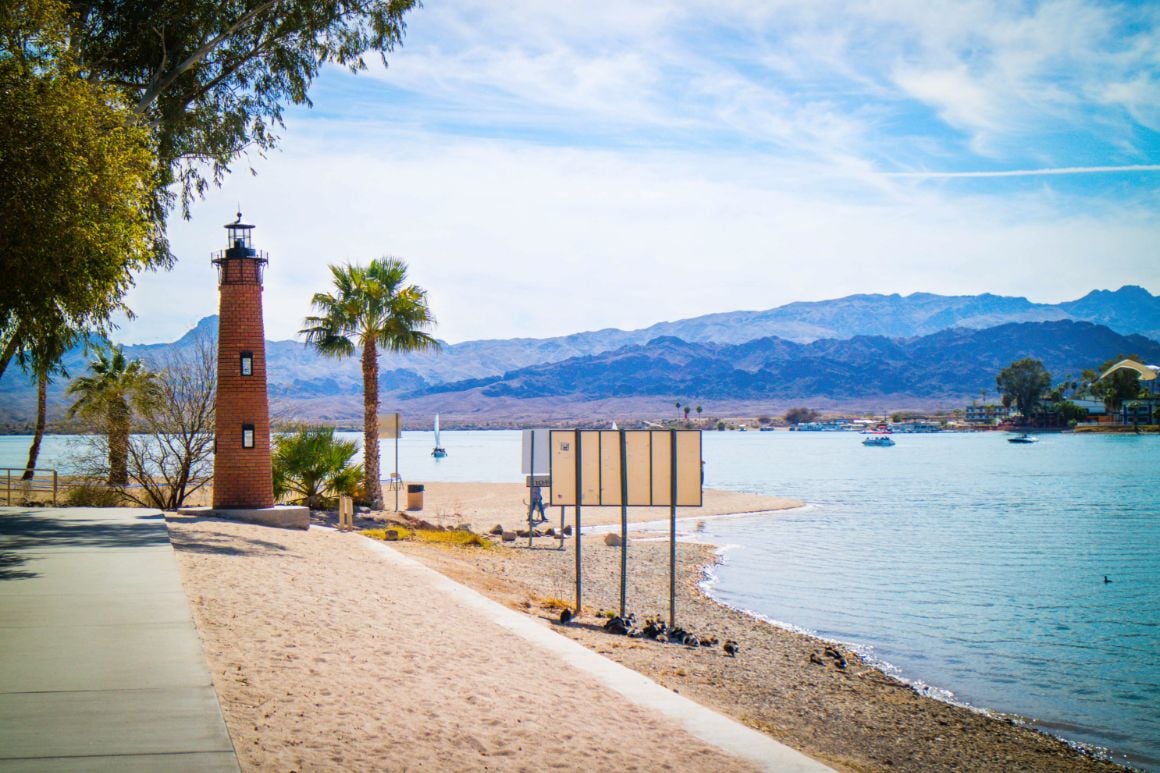
Digital nomads who stick around long-term are the ones that have come to terms with the high cost of living in the city. Where other online workers may have moved on to hubs like Prague and Lisbon, digital nomads in London will need consistent work or decent savings to live there indefinitely.
Internet in London
Internet in London is high quality, and digital nomads shouldn’t have any issues with connections. London also offers several free Wi-Fi points where you can access decent internet without venturing into a cafe.
There is accessible Wi-Fi at train stations, the subway, as well as many public parks and squares.
You can purchase internet plans for your home for around $50 and up. Data plans in the UK provide good value with 20gb of data on offer for as little as $20 a month.

A new country, a new contract, a new piece of plastic – booooring. Instead, buy an eSIM!
An eSIM works just like an app: you buy it, you download it, and BOOM! You’re connected the minute you land. It’s that easy.
Is your phone eSIM ready? Read about how e-Sims work or click below to see one of the top eSIM providers on the market and ditch the plastic.
Grab an eSIM!Digital Nomad Visas in London
There is currently no digital nomad visa on offer for those wanting to move to London. If you wish to work with a British company and open a local bank account, you will need one of the visas listed above to pursue employment in London.
A tourist visa is a common choice for some nomads who can then save on the cost of the application. The tourist visa doesn’t grant you working rights, however, as long as you don’t engage with local clients and continue to receive payments through a foreign bank account, you’re unlikely to raise eyebrows among local officials.
Co-Working Spaces in London
Working online and traveling the world as a digital nomad offers the type of independence that few paths in life can match. Having said that, the growing popularity of co-working spaces should have you rethinking your life as a lone wolf.
There are many positives to working in such a space. These include the ability to interact and network with like-minded people and bounce your ideas off of those that understand.
Co-working spaces are common here, which is splendid news if you’re a digital nomad in London. You’ll find one in most boroughs. Whether that be Work.Life in Camden or the Greenhouse near Islington. Most offer hot desks, conference rooms plus on-site cafes and health facilities.
Prices vary, but hot desking at Work.Life can cost around $250 per month, or $5.50 per hour.
Final Thoughts on London Living Costs
London has much to offer expats. The city is a melting pot, allowing expats who stick around to become as much a part of the community as anyone else. This is one of London’s biggest selling points.
Add in a diverse culture, a massive entertainment, arts, and hospitality scene, and you can see why London is a destination for those who want to switch up their lifestyles.
With a high cost of living, an indefinite life in London may not be workable for everyone, whether that means you return home or explore another part of the UK will be down to your own situation. For many, however, it’s simply the price to pay in order to experience life in one of the world’s great cities.

And for transparency’s sake, please know that some of the links in our content are affiliate links. That means that if you book your accommodation, buy your gear, or sort your insurance through our link, we earn a small commission (at no extra cost to you). That said, we only link to the gear we trust and never recommend services we don’t believe are up to scratch. Again, thank you!




